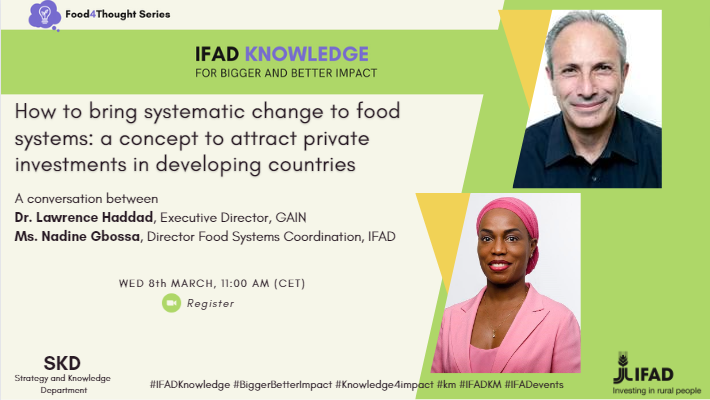SEED FUNDING JOINT PROGRAMMES
Jordan
Transforming Jordan's Agri-food System towards greater sustainability and resilience



PROJECT TITLE | Transforming Jordan's Agri-food System towards greater sustainability and resilience |
| Context | Since 2021, Jordan has placed food security and system at the forefront of its developmental goals with the adoption of the National Food Security Strategy (NFSS) for 2021–2030. The NFSS envisions access to safe, affordable, and nutritious food for all by 2030. The 2022-2024 National Food Security Action Plan for the implementation of the NFSS prioritizes food availability, improved access to and better utilization of food, and strengthening governance mechanisms. |
| PUNOs | FAO, UNIDO |
| Contribution to SDGs | SDG 2 Zero Hunger, SDG 8 Decent Work and Economic Growth |
| Contribution to other SDG transitions | Decent Jobs and Universal Social Protection |
| Duration | September 2024 – August 2025 |
| Expected financial leverage | USD 30,000 – co-financing from FAO, UNDO, MoA |
| Alignment with SG Call to Action | Policy integration; Food systems governance; Research, data, technology and innovation; Inclusive and participatory design; Private sector engagement; Financing |
| Outcomes | The JP strengthens the government’s capacity to identify and implement strategic programs that deliver positive outcomes across multiple dimensions of food systems, including production, post-harvest, processing and distribution. The JP emphasizes the inclusion of refugees, women and youth in food systems. |
| Partners |
|
| Outputs |
|
IFAD Food 4 Thought Event: How to bring systematic change to food systems

©IFAD
This Food 4 Thought event was hosted by IFAD and featured a conversation with Dr. Lawrence Haddad, GAIN’s Executive Director, and Ms Nadine Gbossa, Director for Food Systems Coordination in IFAD, on how to bring systematic change to food systems. The discussion was introduced by Dr. Jyotsna Puri, Associate Vice-President of Strategy and Knowledge Department at IFAD and moderated by Lenyara Fundukova, Senior Knowledge Management Specialist at IFAD. During the event, actors and related mechanisms that can attract private sector investment in developing countries to generate a positive food systems transformation, were explored and discussed.
View the full event recording.
About the Speakers
Dr Lawrence Haddad is GAIN’s Executive Director since 2016. From September 2020 and up to the United Nations Food Systems Summit that took place on 23 September 2021, Lawrence chaired Action Track 1: Ensuring Access to Safe and Nutritious Food for All. Lawrence is also the co-convener of the Standing Together for Nutrition. Prior to GAIN, Lawrence was lead author of the Global Nutrition Report, Director of the Institute of Development Studies (IDS), and Director of the Food Consumption and Nutrition Division at IFPRI. He is the winner of the 2018 World Food Prize together with David Nabarro. Click here for more.
Ms Nadine Gbossa is a senior development professional with over 20 years’ experience dedicated to sustainable development. In October 2021, Gbossa was appointed as IFAD’s Director for the Food Systems Summit follow up. She is also the Chief of Means of Implementation with the UN Food Systems Coordination Hub. As a Country Director and Regional Head for IFAD, Gbossa worked in several African countries with vulnerable communities, governments, development partners and the private sector for inclusive growth. With IFAD in Nigeria, Gbossa managed the largest country programme in the region and she was later appointed as Director for the West and Central Africa region.
